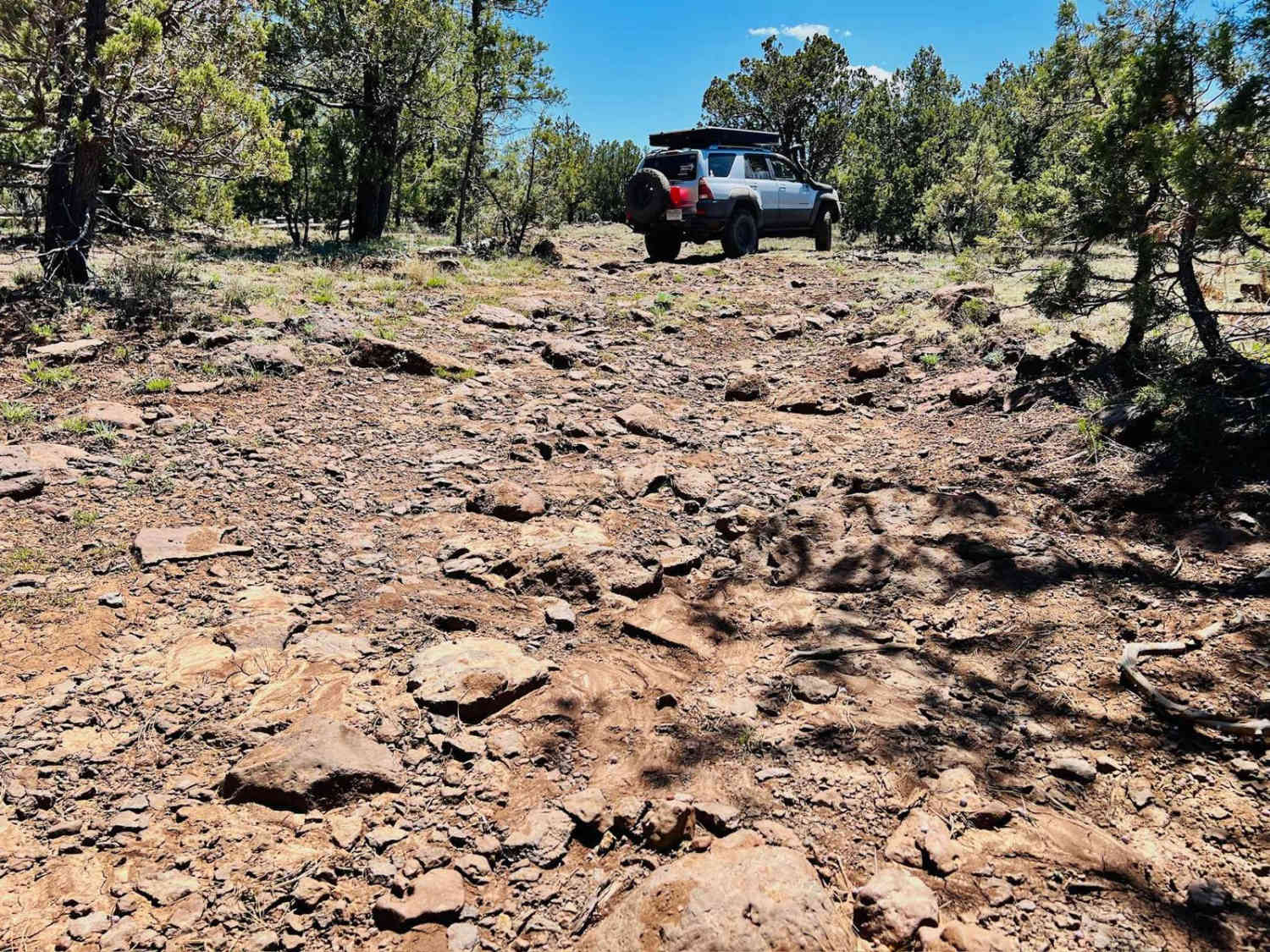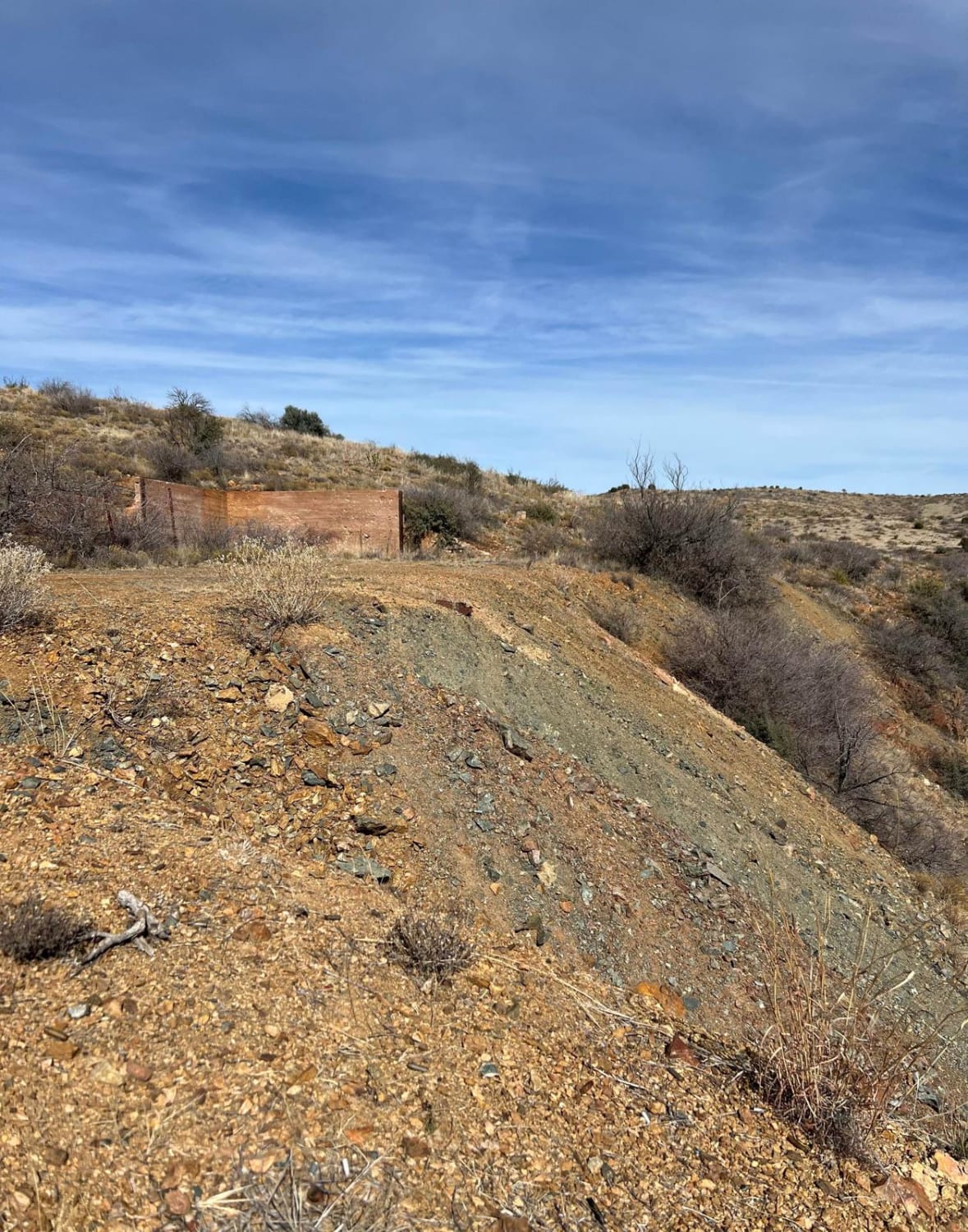Wilbur Tank Trail
Total Miles
2.8
Technical Rating
Best Time
Spring, Fall, Winter
Trail Type
Full-Width Road
Accessible By
Trail Overview
Bumpy volcanic stones cannot be avoided on this trail. The rocks make for a slow driving experience. The Wilbur Tank is on the larger side and even attracts ducks. After a nice wet winter, it will be full of water and attract lots of wildlife. The end of this trail out on the canyon gets more exciting with large boulders to navigate around or over. It turns into a bumpy rock garden just before the end. The trail isn't challenging; it's just brutally slow-going. The trail turns downhill at the very end, and there are some low trees with drooping limbs on the trail. At the bottom of the hill, the trail ends, and there is room for 1-2 vehicles. An old fire ring is off to the right in the trees. Check burn restrictions before heading out. Some washouts also run down the trail, allowing for slight suspension flexing. Cell service is spotty at best out here. Be sure to download your offline maps before exploring this area.
Photos of Wilbur Tank Trail
Difficulty
Some washouts also run down the trail, allowing for slight suspension flexing. There is one spot on this trail beyond the Wilbur Water Tank that is rutted-out with larger rocks, making it a 3. Most of the rest of the trail is a 2. It's an easy, narrow, dirt forest road.
History
The Mogollon Rim is a rugged escarpment that forms the southern limit of the Colorado Plateau. It extends across the entire forest, approximately 200 miles in total, and provides excellent views within plateau country and desert canyon country as well. Dropping as much as 2,000 feet in some areas, the Rim offers some of the most far-reaching scenery in Arizona. Views stretch from its rocky precipice to Four Peaks of the Mazatzals northeast of Phoenix. Sightseeing is a favorite activity along the Rim. Still, this forest area also boasts a historic system of hiking and horseback trails, a couple of picturesque lakes for boating and fishing, and backcountry skiing for wilderness adventurers. The Mogollon Rim is a topographical and geological feature cutting across the northern half of Arizona. It extends diagonally approximately 200 miles, starting in northern Yavapai County and running eastward, ending near the New Mexico border. It forms the southern edge of the Colorado Plateau in Arizona. The Rim is an escarpment defining the southwestern edge of the Colorado Plateau. Its central and most spectacular portions are characterized by high cliffs of limestone and sand, namely the Kaibab limestone and Coconino sandstone cliffs. This escarpment was created by erosion, faulting, and cutting dramatic canyons into it, including the Fossil Creek Canyon and Pine Canyon. The name Mogollon comes from Don Juan Ignacio Flores Mogollon, the Spanish governor of New Mexico from 1712 to 1715. The Mogollon Rim's limestones and sandstones were formed from sediments deposited in the Carboniferous and Permian Periods. Several of the Rim's rock formations are also seen on the walls of the Grand Canyon. The extensive basaltic lava flows cap or even bury the Rim in many places. Be sure to keep your eyes peeled for the endangered Mexican spotted owl. Other wildlife present on the Rim will be herds of elk and deer. You may see black bears, mountain lions, and even the occasional red-tailed hawk or peregrine falcon. There are also coyotes, horned toads, and rattlesnakes. This area frequently has fire restrictions early in the season. Be sure to contact the local ranger station for information about the current campfire restrictions. Or, at the minimum, check the Coconino Fire webpage. https://www.coconino.az.gov/2595/Fire-Restriction-Information
Status Reports
Wilbur Tank Trail can be accessed by the following ride types:
- High-Clearance 4x4
- SUV
- SxS (60")
- ATV (50")
- Dirt Bike
Wilbur Tank Trail Map
Popular Trails
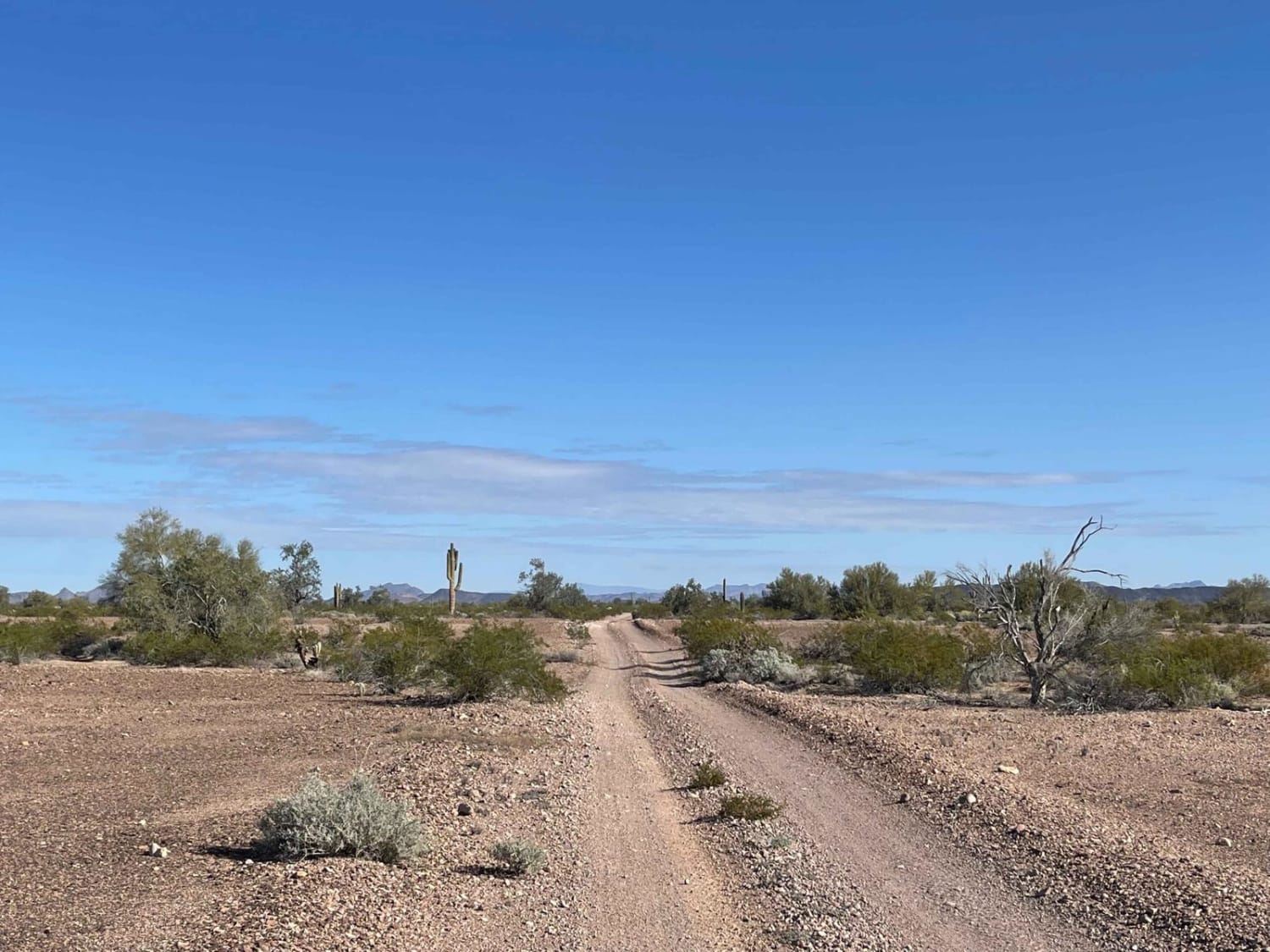
AZ Peace Trail Red Raven to Chicken Foot
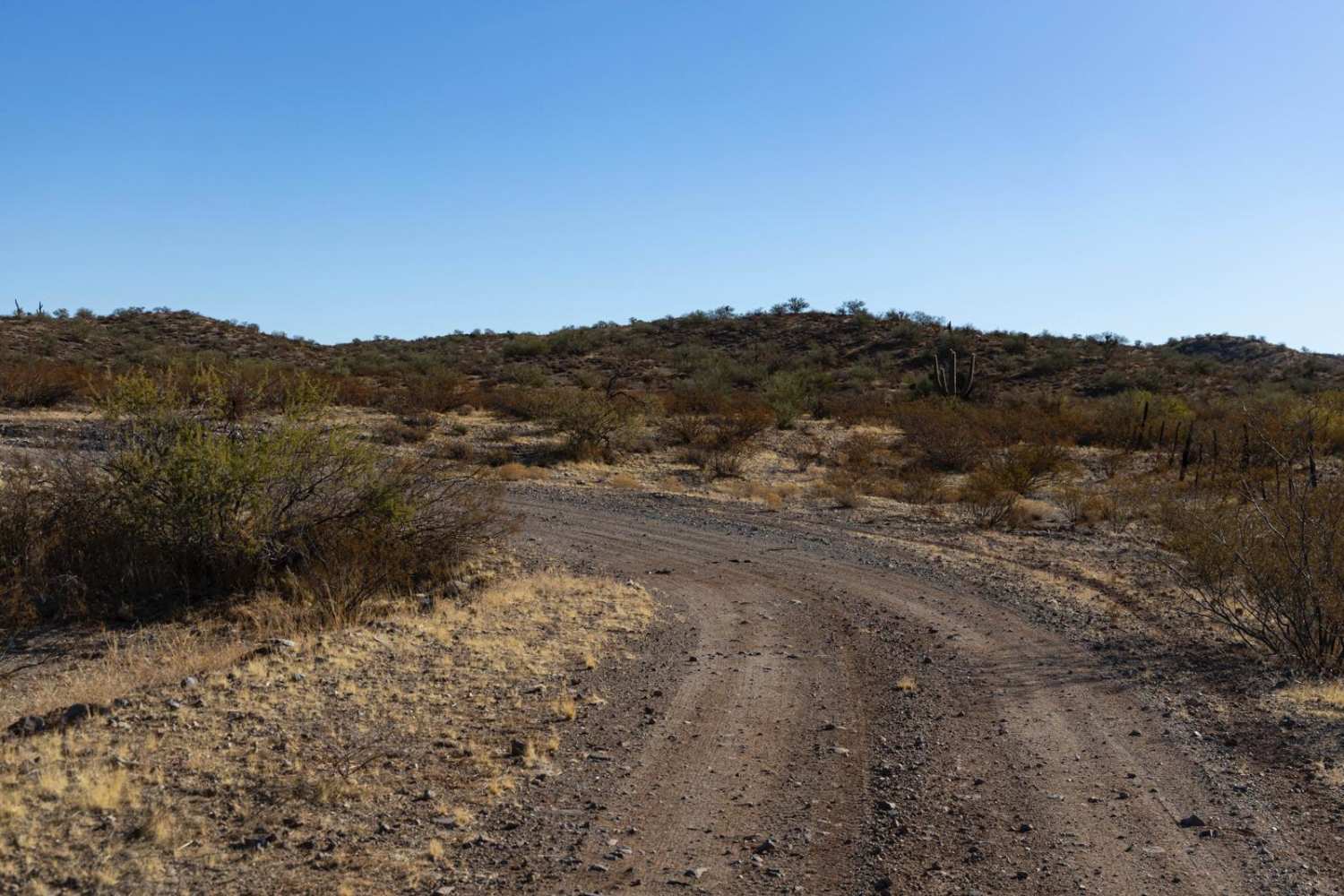
Straight Shot
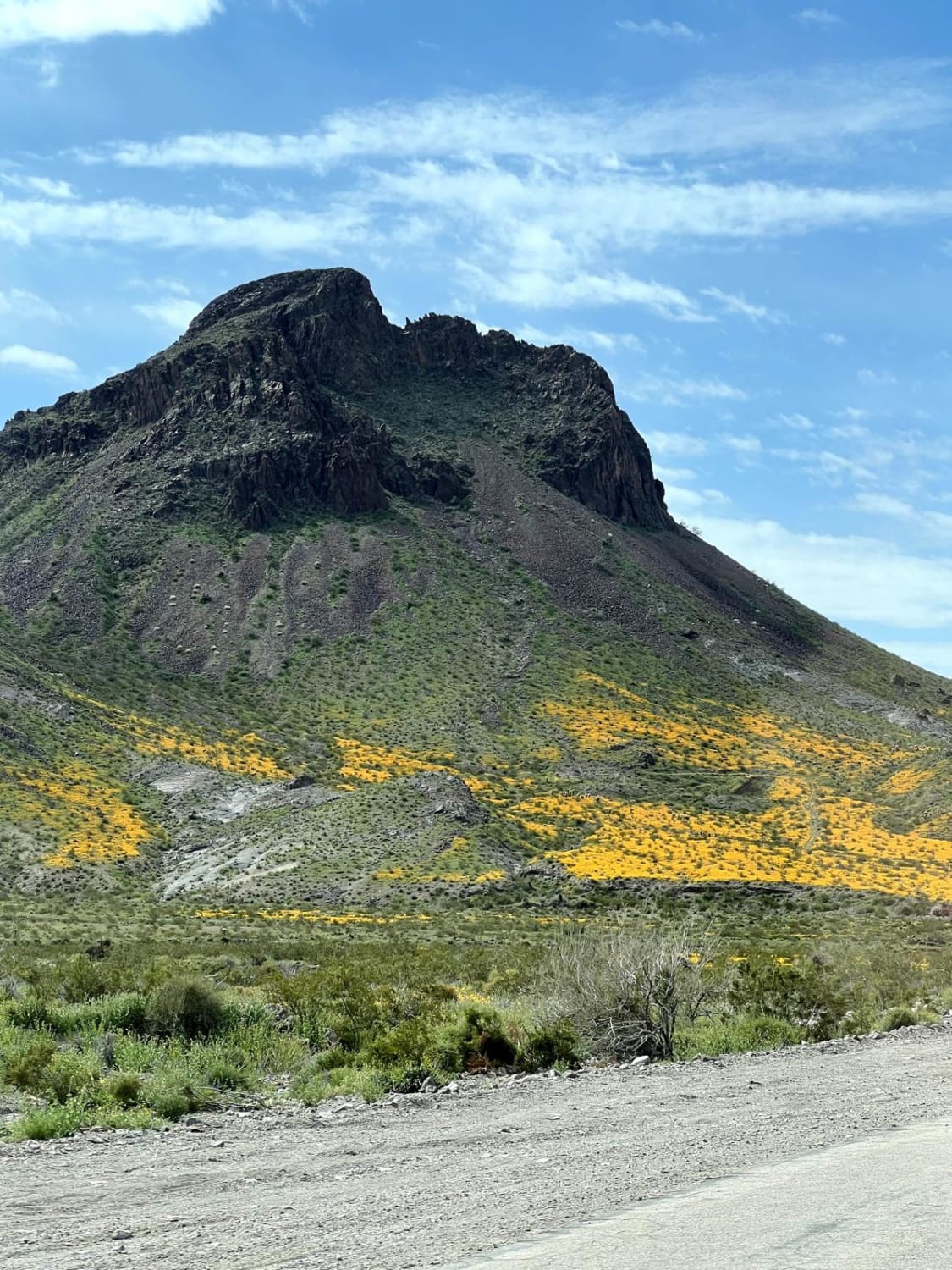
AZ Peace Trail Segment Lake Havasu to Kingman
The onX Offroad Difference
onX Offroad combines trail photos, descriptions, difficulty ratings, width restrictions, seasonality, and more in a user-friendly interface. Available on all devices, with offline access and full compatibility with CarPlay and Android Auto. Discover what you’re missing today!

